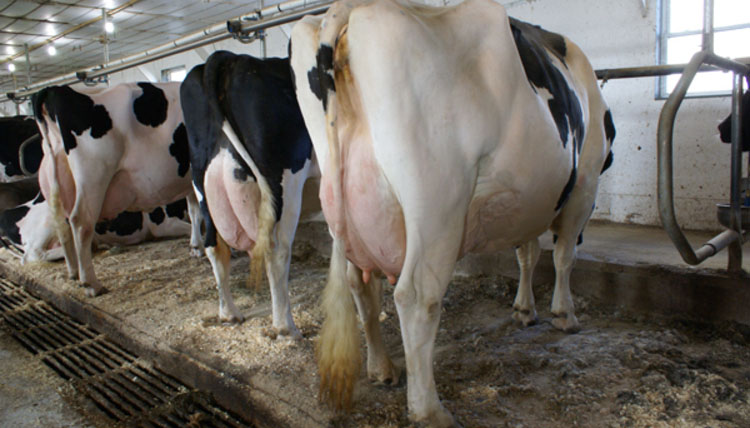
The Sunday Mail

Feeding has a direct impact on the growth rate, production capacity and health status of the animal. Feeding is key for a profitable and sustainable farming.
The cost of feeding has long been recognised as the major cost and the largest cash expense in animal production. It has a direct impact on the growth rate and health status of the animal as well as on the animal’s product quality. In addition to this, it also has effects on the environment.
As farmers send their cattle out to the pasture, they are looking for their cows to stay healthy during gestation and their calves to put on weight prior to entering feedlots.
However, most forage sources do not contain adequate levels of minerals to ensure your cow herd is performing optimally. Many farmer’s grazing cattle opt for feeding of vitamins and minerals to help supplement their herd. But, with all the different supplement choices, how do you decide which one will work best on your operation?
Therefore, knowledge on animal nutrition is key for a profitable and sustainable farming.
Animal nutrition focuses on studying the dietary needs of the animals. These dietary needs consist of nutrients, which are the components present in the feed that animals can digest and utilise. Hence, when feeding a diet, it is important to first test its nutrient content.
If the feed is an acquired commercial product (concentrate, lick etc.) the nutritional value must appear in the label of the product. On the other hand, if the feed is done with in-farm available feedstuffs (fodder crops, crop residues, grains…) their nutritional values should be tested by sending it for laboratory analyses. Testing the nutritional value of made in-farm feeds and of forages is a must, especially in the dry season when their protein content and energy can be extremely low.
Animals know how to auto regulate and they stop eating once they feel satisfied. However, if the nutrient content of the feed is very low, the consumed feed will not be enough to meet their requirements and they can suffer from malnutrition, even if fed ad libitum. Some farmers reported cases of animals fed ad libitum that were extremely weak, sick and that even died.
These events may not be necessarily related to a toxic diet, but they could be due to the shortage of nutrients. If this was the case, it could have been avoided by correcting the diet. Tip: Always test the feed!
Animals´ nutrient requirements can vary among different species (swine, poultry, cattle etc.) but also among the same species in different status (pregnant cow, lactating cow, growing calves etc.) or under different conditions (external temperature, external stress etc.).
For example, a lactating cow will need more energy, water and calcium than a dry cow, pregnant sows need extra fibre… Furthermore, the production purpose also plays a role when designing a diet: feedlot, maintenance, organic farming, etc… all of them have different requirements.
Sections on animal feeding
Many animal nutritionists are ready to explain the needs of the different farm animals under different circumstances as well as to optimise the available feed resources to provide the best possible balanced diet.
Balanced diets: It will focus on the needs of the different animals under different conditions. It will enable farmers to understand lab analyses results, work out their own diets and develop a deeper insight of the topics.
Organic farming: Guidelines to have a certified organic production, including what is allowed to feed.
Nutrition related illnesses: Lack of nutrients but also excess of nutrients can cause severe problems. In this section the most common nutrition related illnesses can be explained as well as how to detect, overcome and avoid them
Sustainable farming: How to optimise a diet with the local available feeds and supplements (drought resistant fodder crops, treatments to improve the nutrient content of straws…). The nutritional values of different local plant species and how to grow them will be presented, innovative animal feeding strategies such as insects or a synergic approach mushroom-livestock production will be explained.
Education is essential
Staying educated on the mineral you are using is incredibly important. A good distributor will provide education and information to customers on changes and best practice utilisation of their product. The direct relationship with animal nutritionists is the best resource to our customers.
There are a lot of mineral supplements on the market and farmers have to take the time to choose best option to fill that gap for a high quality product. “We have the ability to deliver Cattleman’s Choice Mineral Supplement from one ton to a whole truckload.
While cost and product quality are of course the utmost concern in choosing a supplement, farmers should keep in mind that as time goes on, it is their relationship with a feed distributor which will be the most valuable in making long term supplement decisions. The focus is not just on buying a product, but rather acquiring superior products which satisfy a need for improved production of the livestock.
There is no “one size fits all” mineral package.
The goal is to provide a mineral package that fits most of the cattle, most of the time. What cattle need changes every year and can change within the year. Geographical region, production goals, herd health, forage source, and time of year are all factors that should be accounted for when selecting the correct mineral package for a customer.
This allows for a farmer to feed the correct mineral package at the correct time of the year in the correct amounts.
When moving from winter feed to summer pasture, the nutritional needs of the herd change and your mineral should generally change as well. – farm4trade.com.



